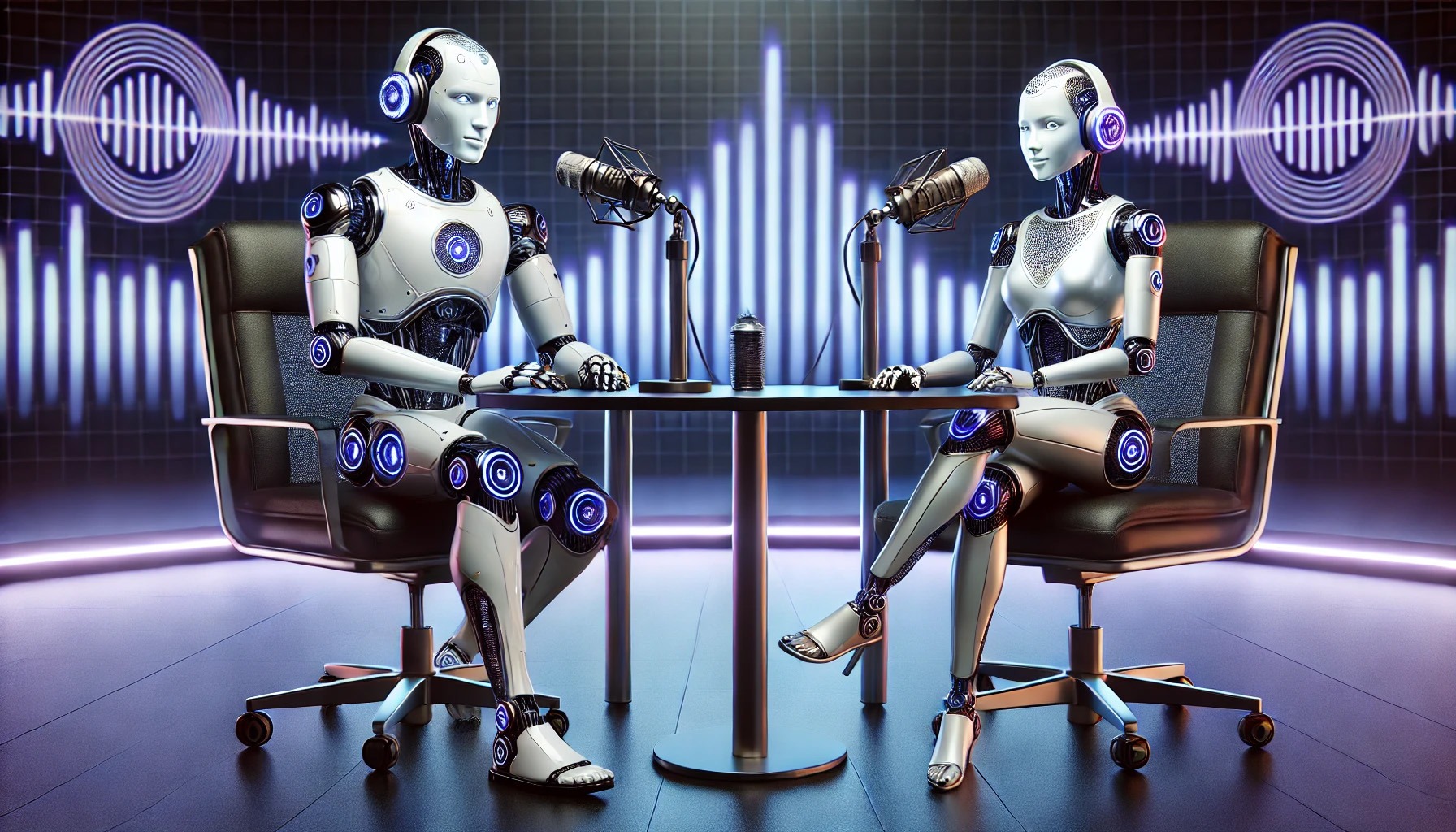Artificial intelligence is reshaping the world as we know it, and podcasting is no exception. Imagine tuning into your favourite show only to find that the host, script, and storyline were all created by AI. This might sound like science fiction, but it’s happening right now.
One striking example is the audio novel Fragments of a Rose. This dystopian tale explores digital identity crises and was co-created using AI tools like ChatGPT for scriptwriting, Eleven Labs for voice generation, and advanced sound design. What makes this project unique is that it’s not just an AI-written story. It’s also an AI-produced podcast featuring narrators who analyze and expand on the story’s complex themes. This blend of technology and storytelling highlights how artificial intelligence is pushing creative boundaries.
The Rise of AI Narrators
Gone are the days when a podcast’s success depended solely on a charismatic human host. Today, AI tools can generate realistic voices with diverse accents and tones. For example, if you need a soothing British accent for a philosophical podcast, AI can deliver it instantly. Prefer an energetic and lively voice for a comedy show? AI has that covered, too.
These digital voices never need breaks. They don’t stumble over words and can even analyze the stories they narrate. This ability adds depth to the listening experience. Furthermore, they can adapt to different moods and styles, making them versatile tools for creators.
AI Creating and Critiquing AI: A Feedback Loop
One fascinating aspect of AI-generated content is its self-referential nature. In Fragments of a Rose, the AI narrators discuss characters and themes created by another AI. These voices explore human emotions like loneliness and the effects of technology. Yet, they do so without actually experiencing these feelings.
This raises thought-provoking questions. What does it mean to be creative? Can something without consciousness truly tell a story? While there are no easy answers, these questions open new avenues for exploring creativity and technology.
A New Era of Audio Storytelling
This shift in podcasting is about more than just technology. It’s a new way to produce and consume audio content. For instance, AI can create a daily news podcast in minutes. It also allows creators to experiment with voices, formats, and ideas in ways that were once impossible.
However, this evolution comes with challenges. For one, audiences still value human connection in storytelling. The warmth, humor, and personal touch of a human host can be hard to replicate. As AI takes on more creative roles, content creators must find ways to maintain authenticity and build trust with their listeners.
Challenges: My Experience with AI Podcasts
While AI opens exciting possibilities, it isn’t without its struggles. For example, I uploaded Fragments of a Rose to SoundCloud on January 1, 2024. A year later, it has only 74 listens. Similarly, my other AI-focused SoundCloud channel, From Ordinary to Oh-So-Original, has just 29 plays across four podcasts. Despite optimizing for SEO, the audience hasn’t grown as I hoped.
Why might this be?
First, SoundCloud might not be the best platform for AI-generated podcasts. Platforms like Spotify or Apple Podcasts might offer better visibility. Second, my channels might be too niche, and building an audience takes time. Lastly, audiences may not yet embrace AI-driven content. While fascinating, it’s still new and unfamiliar to many listeners.
Embracing the Future of Podcasting
The rise of AI in podcasting is undeniable. Instead of fearing this change, we should explore how humans and AI can collaborate to create compelling content. Perhaps the future lies in hybrid models. In this approach, AI handles production and routine tasks, while human creators provide the personal touch that resonates with listeners.
In my experience, blending technology with personal input is essential. I aim to infuse my work with humor, artistic flair, or personal stories. These human elements are what make content truly meaningful.
As AI evolves, so will the art of storytelling. Whether you’re a creator or a listener, it’s an exciting time to be part of this journey. Next time you hear a podcast, take a moment to wonder: was it crafted by a human, an AI, or both?
Conclusion
AI is transforming podcasting in ways we could only imagine a few years ago. While challenges remain, the potential for innovation is immense. By embracing AI and working alongside it, we can create new, engaging forms of audio storytelling that capture the imagination of audiences worldwide.

